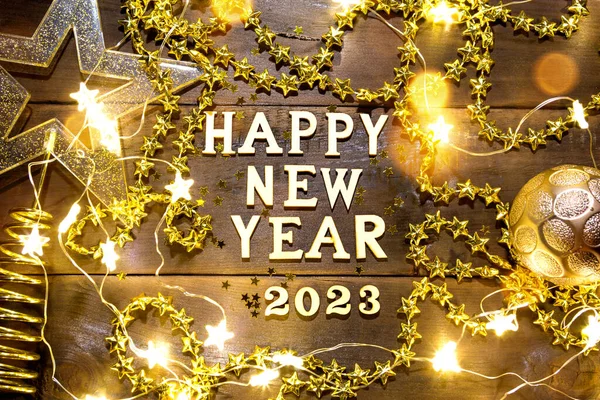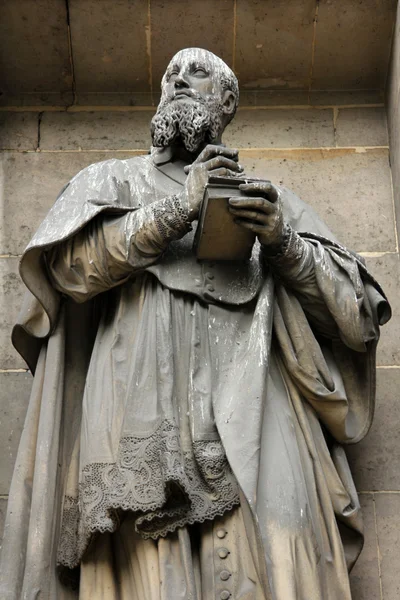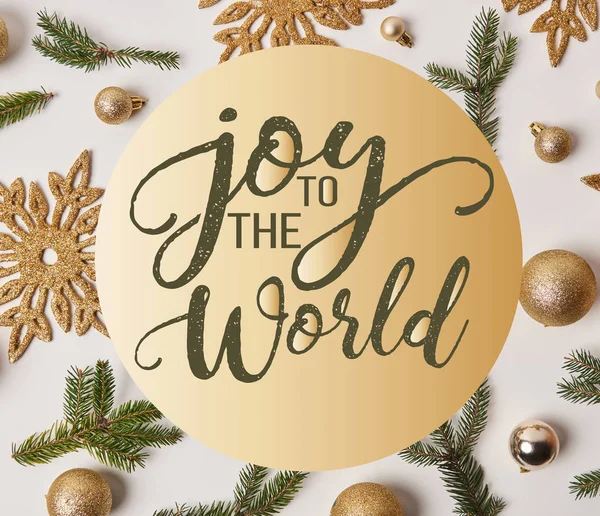
Wednesday, January 4, 2023
A Wise Rabbit digs three Burrows-
Monday, January 2, 2023
Catholic Church and Synodality
 "The journey of Synodality is the path God expects from the church in the 3,000th century."
"The journey of Synodality is the path God expects from the church in the 3,000th century."
These are the words of Pope Francis reported in the Catholic Peace Weekly by a professor in the humanities department. One theologian said that if Synodality is not realized, the Second Vatican Council will be a "broken path". Synodality is actually the way to realize the blooming of the church declared by the Council in the 20th century.
In Korean churches, many shepherds and believers expect Synodalitas to give the church new vitality. And it seems that such expectations include the 'democratization of the church'.
The basis of Synodality is the equal dignity of all members. Believing in Jesus we received a "new" identity as the children of God, and this identity one of the noblest can't be compared to anything else.
All Christians, whether shepherds or believers, confess the same faith in Jesus Christ, share the same bread, love with the love of God revealed in Jesus, and have the same hope for eternal life. Therefore, all Christians are fundamentally united by brotherhood and also carry out the same mission of testifying and proclaiming Jesus Christ. This is what it means to have equal dignity.
Shepherds and believers testify to Christ in their own ways and serve the truth, as active subjects. The shepherds and the believers have common responsibilities in testifying to the truth, although in different ways. This Synodality is very much like democracy. It is understandable that not a few people regard Synodality as a democratization of the church.
However, Synodality has more to think about. Not all Christians are active subjects, but they are not the "main characters" of the church. Because it is the Holy Spirit who makes the church live, proclaims the gospel, makes people confess Jesus as Christ, and call God Father. The main character of the church is the Holy Spirit. We are actively participating in the leadership of the Holy Spirit.
Therefore, the Synodality journey needs a third reference point in addition to its members. There is a common point that both shepherds and believers should look at: the Holy Spirit, the Word, the Success, and the Love of God. In short, like a triangle, God's domain is needed in addition to the relationship between humans. For a community connected by the brotherhood to be truly a people of God, not just a fraternity, a third vertex is needed to illuminate, guide, and interpret what we do. In the Synodality journey, important listening and identification is the process of recognizing this reference point, and implementation is to follow this reference point. This is the fundamental reason why Synodality cannot be identified with democracy even though there are many democratic elements.
Therefore, the church of Synodality is not simply about creating a "church from below." A church that moves around the reference point is a church that communicates in various directions, from top to bottom, from bottom to top, and horizontally. While shepherds and believers play their own roles and respect each other's dignity, they look at the same reference point together. In the language of democracy, there is a democratic element, but it is Synodality that goes beyond democracy. Synodality is not just a decision-making process, but a 'process' that takes place throughout the life of the church.
Saturday, December 31, 2022
Happy New Year!

The New Year of 2023 has dawned. So begins The
eyes of the Believer Column in the Catholic Times.
The year 2023 has dawned. The word new year reminds the columnist of the feeling of life and hope more than anything else. Just like the words that make the heart flutter even when young people hear them, the same goes for the first day of the new year. Even though our bodies are mature and old, shouldn't we be young at heart? Like the white drawing paper that absorbs all the colors and becomes the basis for a beautiful painting, he hopes that this morning we too have a clean and generous heart that embraces the world and our neighbors.
If the end of last year was a time to let go of old things, New Year's Eve is a time to welcome new things. Between Yesterday and Today there is only a difference of one day, but a change in the year. Yesterday is like today, and today will be like yesterday, and yet change is orderly and unmistakable. This must be the providence of God the Creator.
When he thinks about time, the ancient Greek words 'Chronos' and 'Kairos' come to mind. Compared to Chronos, which is an objective, physical time that flows from the past-present-future, Kairos is a subjective and decisive time that experiences a special moment or change. In particular, from the perspective of the Hebrews, Kairos is the time that takes place in a relationship with God. Therefore, we Christians are beings living the Kingdom of God here and now in Kairos time.
At the start of the new year, everyone thinks about what and how to live this year. Based on such deliberation, yearly goals and plans are made. He remembers making a life plan before vacation in elementary school and showing it to the teacher. He drew a round circle in the shape of a clock on white drawing paper and filled it with a daily schedule. It's a daily schedule that is a miniature version of the annual plan, for the ambitious resolution for a year begins to fade with time unless we do something similar to what the teacher suggested.
Do you have plans for this year too? Whether it's a big step or a small step, the will to dream of something is the first step. It is not something to be disappointed and hesitant about even if you end up with a three-day resolution. This is because such trial and error is also the material that forms one's present. He recommends you do not worry about the future and start with small things and practice them.
The columnist wants to pat himself on the back with new hope in the new year as he enters his second year of retirement. Like the excitement of schoolchildren preparing for a picnic. Above all, he tries to practice reading, writing, and walking, which are his 'three pleasures of life' (人生三樂). Also, as a Christian, he needs to think more about his identity, church, and life of faith. What would Jesus say to him now and what practice would he be asked to do? He wants to get away from prayer and faith life only for himself and his family and turn his attention more to his neighbor and society.
"A bird does not look back as it flies. All the past, good or bad, is like a stone attached to your wings and hinders your journey in the present moment." He quotes a Korean poet to emphasize freedom after letting go. Yes. There is no need to mournfully look into the past, which will never come again. The past is just a time to remember and learn. The future comes hesitantly, and the present flies like an arrow. So, wouldn't it be important to act according to God's word in the living present? He hopes the New Year 2023 will be a time of giving and receiving much love in the grace of the Lord and in 'God’s Time Kairos'. Take care of your health with a rabbit-like smile, be harmonious with your family, and hope that everything you want bears fruit abundantly. May the Lord's blessings fill your home. Amen!
Thursday, December 29, 2022
St. Francis de Sales' Spirituality

December 28 of this year marks the 400th anniversary of the death of St. Francis de Sales the "Saint of Meekness and Doctor of Charity." Saint John Bosco in the 19th century, made a vow at the time of his priestly ordination that "Salesian charity and gentleness will be my guide." He was a follower of St. Francis de Sales and this simple spirituality of kindness was the reason the community he established was called the Society of St, Francis de Sales in his honor in 1859 dedicated to the education of youth (Salesians).
The director of a Theological Institute in the Eyes of the Believer Column of The Catholic Times introduces us to the spirituality of St. Francis de Sales. She feels that the saint's spirituality is not well known among our present-day Catholics.
Many laymen, from aristocrats to the poor, approached the Bishop de Sales for spiritual guidance, he led them to respond to God's Spirit by asking: "You can do that can't you?" rather than instructing them to act in a certain way. He was leading them to respond to the Holy Spirit in their way.
Among the books he wrote is: "Introduction to the Devout Life" which was edited by collecting spiritual guidance letters written to the one who loves God. It was one of the first books written for lay spirituality and is still read as a classic. This book respects the unique life and calling of lay people living in the world, breaking away from the long-standing conventional wisdom about Christian spirituality and perfection.
The saint viewed the world and human nature created by God with love, emphasizing that just as the gifts of the Holy Spirit vary (see 1 Cor 12:1-11), each person bears the fruit of their devotion according to their position and office in life. In the Introduction to the Devout Life, he says that it is foolish for the laity to shut themselves up in the church, not to take care of their families, and not to work. The spirituality of the laity suggests that it is more important to strive to build on the virtues such as patience, kindness, humility, poverty, chastity, and gentleness in daily life rather than excessive fasting or penance. Among the virtues, 'humility', which leads to a life pleasing to God, and 'meekness', which leads to a life pleasing to one's neighbor, are the 'double commandment of love (refer to Matthew 22:37-40) to love God and one's neighbor.
He taught that 'charity' is when we try to live the virtues with God-given love, and when we do well naturally and frequently in our daily lives with that charity, this natural act is 'piety'. In other words, the devout life he thinks goes beyond prayers for inner sanctification and pious acts but continues in the practice of loving God and neighbor in daily life. He emulated Jesus' humility' and 'meekness' and emphasized the spirituality of practicing 'Vive Jésus' in everyday life.
For this practical devotional life, the saint explains the prayer method of meditating on the life of Jesus. Emphasis was placed on training. In addition, even if it is not a specific 'space' of a church, he recommended we build a small church in our hearts in the middle of our daily lives and have a 'time' of holy spiritual seclusion where we stop for a while to reflect and remain in God’s love. And when this kind of reflection and meditation is over, he urges us to go back to our daily life and constantly reflect on our resolution and its practice.
In
this final week of waiting for Christmas, light all four Advent candles
and take a moment of spiritual seclusion recommended by the saint. To
her who hopes and resolves to deeply feel the love of God who is with us
always, she wants to become a humble and meek Jesus, the Salesian saint
seems to be quietly whispering to her not to stop talking but to act
the talk.
Tuesday, December 27, 2022
Born In a World Without Peace
The Catholic Times' Weekly column on Reconciliation on the peninsula reminds us of the King of peace and the times in which he was born.
The baby Jesus, came to the world as the Prince of Peace, born paradoxically in a land far from peace. The estimated year of Jesus' birth, 4 B.C., was the year Herod the Great died. The tyrant, even executed his wife and sons in order not to lose his power. After his death, the territory ruled by Herod was divided into three parts, and Judea was ruled by his son Archelaus.
No wonder the Jews, who had suffered oppression for so many years, had hoped for a new ruler. But the country seems to have become more unstable. Some scholars view 4 B.C. as the time when notable events occurred in the course of the catastrophe that led Israel to its final destruction in the year 70 AD.
The demands of the suppressed crowd led to the young king's ascension to power at the age of 19. People wanted to punish those who were favored by Herod and restore the legitimacy of the high priesthood. They also wanted to reduce taxes.
As Passover approached, when even the locals gathered in Jerusalem, Archelaus becomes concerned about an accidental riot. However, the 'active' intervention of the army, which was tasked with controlling the crowd as the king ordered, led to the tragedy of mass murder.
The Jewish historian Flavius Josephus described the situation thus: "However, under the influence of the teachers of the law, those who became agitators excited the people by creating a disturbance as they had planned. So they rushed at the soldiers and threw stones at them. Wounded soldiers fled, including the commander. But soon the people fell victim to the hands of the army. In the end, Archelaus thought that to stabilize the regime, he had no choice but to get rid of those who attempted the riot. So he sent his whole army against them. He sent horsemen outside the temple to prevent those in tents from helping those inside the temple and even killed those who thought they had escaped danger by fleeing from the foot soldiers. The cavalrymen killed 3,000. The rest went up into the nearby mountains."
The time surrounding the birth of Jesus and his life on this earth gives us some idea of the problems his movement of love even of enemies, the first such statement to be put so bluntly in history, had from the very beginning and continues even after two thousand years to be unwelcomed.
We celebrated Christmas Day. In a world where war and violence are endless, we eagerly await the fruits of a life lived according to the principles of the Prince of Peace in a land divided by fear and hatred for each other.
Sunday, December 25, 2022
Meaning of Christmas

Liturgically Advent is preparing for Christmas. What are the meaning of Christmas and the manger? Jesus came into the world within Jewish history and culture that prepared for his coming for centuries. God had prepared his entrance into history from before creation. God can do anything but he choose to enter our world as a baby 2000 years ago, born in a manger.
Manger comes from the Latin to eat (Manducare). He wanted to be our food. A concept that staggers the mind.
Reading the Scriptures we find many reasons that humanity discovers for God's entrance into our world. The expectations of the majority of the chosen people were not met. But the few that did welcome him were also Jewish. He was the Lamb of God whose love took away the sins of the world. A concept understood at that time in history within the Jewish culture.
In the Light of the World column of the Catholic Times the priest, columnist wonders about the way we celebrate Christmas. Do we in this commercialized world appreciate the meaning of the feast?
The incident in which the Israelites who escaped from Egypt complained in the wilderness describes the history of ignorance in which they forgot and rejected the essence of faith (Numbers 11). What will life be like when the essence is lost? Also, what should we do to prevent this from happening?
We need to meditate deeply on the essence of faith and put it into practice. However, it is difficult. Sadly, faith becomes pretense and hypocrisy when one evades the effort and sacrifice required and instead passes the difficulties of life on to someone else.
It is said that evil is often cleverly displayed in camouflage. If both the church and the world are in difficulties today, it is because there is little fruit of the gospel in true faith. The Social Doctrine of the Church also states that "faith is required for response and acceptance, through which one can fully surrender oneself to God and extend concrete love to one’s brothers and sisters"(cf. no. 39).
No one can live without faith. It doesn't matter what kind of belief you have. However, one may be full of faith in one's greed, but the key is whether I have faith in God and whether I have the will to live this faith.
2000 years ago, many people directly or indirectly experienced Christmas. The Wise Men and the poor shepherds saw the Savior with a devout heart, but also a figure like Herod who slaughtered babies. Where did the difference come from? Today, as we all prepare for Christmas, we must reflect that the practice of true faith is the way to heal the world and society.
"Just as Hitler’s strong will was shown at Auschwitz, Jesus’ authority and power shine through on the shores of the Sea of Galilee. But while Hitler's will was his own will, Jesus' will was his Father's will. The decisive difference between these two wills lies in the will of obstinacy or the will of obedience."(M. Scott Peck People of The Lie)
Friday, December 23, 2022
A God of Love and Mercy

In the Theology that reads the World featured article in the Catholic Times, the priest theologian writes about a narrative method of theology.
Shouldn't theology be a statement of faith with tender compassion? Theology is primarily a philosophical narrative However, the Bible is about experience, memory, and faith, communicated to us in narratives.
The writer has lived a long life lecturing on theology and writing papers. He was not an outstanding scholar, but he loved study and the world of scholarship. However, the more he studied theology, the more often he felt that theology did not properly explain faith or convey it convincingly.
You can approach God and faith academically, and the academic effort has its own usefulness. However, the academic approach to God does not precede the experience of God and the life of faith. Theology as a science always comes second. Experience and life always come first. True thought comes from experience and life. The thought of God cannot precede the experience of God and life in the likeness of God. Theology and doctrine are for faith, not before faith.
All human thinking is connected to human experience and life in a broad context. Of course, there can be a realm of pure thought, metaphysical thought. We believe in the creative power of pure thinking and imagination. It is also acknowledged that there is a transcendental dimension of rational thought. However, thoughts separated from experience and life do not have the power to communicate the truth. Theology can better fulfill its role in the church when it is connected to the experience of faith and the life of faith.
Theology only plays an auxiliary role in the process of transmitting and educating within the faith. Throughout history, theology has played a role as wisdom in search for God, rational thought, knowledge, and reflection, and introspection on religious practices. Perhaps today's theology should put more weight on the role of reflection and introspection.
The heart of the religious statement is the biblical statement. The Old Testament is the story of the Israelites who experienced God. The New Testament is the story of early Christians who experienced Jesus Christ. The Bible is a description of experience, memory, and faith. Experiences, memories, and beliefs are passed on to us through narratives.
"Human beings have the instinct to be fascinated by stories, and they not only like to listen to stories, but also enjoy telling stories and participating in them." Could it be developed in a way more familiar to narrative language? Faith begins with stories, and isn't theology a statement about faith?
Can't theology resemble the biblical narrative? Olga Tokarczuk in her Nobel Prize in Literature acceptance speech gives us some interesting and strange words.
"Have you ever wondered who the marvelous storyteller is in the Bible who calls out in a loud voice: 'In the beginning was the word'? Who is the narrator who describes the creation of the world, its first day, when chaos was separated from order, who follows the serial about the origin of the universe, who knows the thoughts of God, is aware of his doubts, and with a steady hand sets down on paper the incredible sentence: 'And God saw that it was good'? Who is this, who knows what God thought?"
"Leaving aside all theological doubts, we can regard this figure of a mysterious, tender narrator as miraculous and significant. This is a point of view, a perspective from where everything can be seen. Seeing everything means recognizing the ultimate fact that all things that exist are mutually connected into a single whole, even if the connections between them are not yet known to us. Seeing everything also means a completely different kind of responsibility for the world, because it becomes obvious that every gesture 'here' is connected to a gesture 'there,' that a decision taken in one part of the world will have an effect in another part of it, and that differentiating between 'mine' and 'yours' starts to be debatable."
Wouldn't faith be conveyed better in the description of affectionate compassion than in the hard and high-handed description? God is a God of truth and justice, but above all, he is a God of love and mercy. As a statement about God, what form of narrative should theology take?
